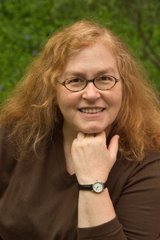
Books on minimalism abound, but what about a book with a somewhat different take? Here's how Patrick Rhone begins his book:
I'm convinced that a successful life is largely driven by balance and moderation. Not too much of anything Not too little, either.And I liked that. I also liked this idea, just a bit further down on the first page:
Just enough.
Enough is a very personal metric.This is a short book and a quick read, and I found a few parts that really resonated with me. For example, here are some of the questions he challenges us to ask ourselves:
What if I did not have this?I also really enjoyed the chapter on sacred spaces. After a brief discussion of churches, synagogues, temples, mosques and meeting houses, Rhone talks about our offices and our homes:
Is this enough for me?
Would having more make it easier?
Would having less make it easier?
If one treats the space where they work as sacred then, in kind, all of the items in that space should be there to support the purpose at hand. ... If one treats the place they rest as sacred, one should remove and not allow anything that does not support that purpose.Both here and in another chapter, Rhone extends that idea of sacred space to our email inboxes, saying:
Treat your email inbox as sacredly as you do anything else that requires the high value un-replenishable resource that is your time and attention. Do not allow things in that are not worth it. Unsubscribe from newsletters you do not read. Opt out of merchant promotions and special offers. Or use rules and filters to automatically file these away for later reading. ...Another subject that was dear to my heart, as a Twitter addict, was Rhone's discuss about the fear of "missing out." How does an information junkie deal with this? Rhone suggests:
Treat others' inboxes as sacred, too. ... Get to the point quickly. Keep it as short as possible. Respect your reader's time.
Possibly, it is simply by admitting that we will miss out. We do already. All the time. We can't read every tweet. We can't see every photo. We can't watch every news story.Rhone also encourages us to limit the number of people we "follow" or "friend" on social media sites, so that we can actually have "meaningful connections."
And what did I do immediately after finishing this book? I unsubscribed from one email newsletter that I only rarely find useful, and I stopped following about 35 people on Twitter. I'm at 491 right this minute — way more than Rhone's 230, but moving toward a less-overwhelming Twitter feed than I've had in the past.

4 comments:
This really resonates with me, Jeri! I have always believed in moderation. I don't always succeed, but I try. I couldn't ever be a minimalist. I love art too much. However, the pursuit of balance is perfect for me.
Thanks for this timely post!
I am a minimalist, but we still have houses, cars, and stuff around the house -- but we surround ourselves only with the people and things we love. Anything that isn't useful or beautiful doesn't stay. Also, let's not forget Dunbar's Number.
MarySees, you're very welcome! I so glad this post was meaningful to you.
Michael, the author mentions Dunbar's Number in the book, even if he follows more Twitter accounts than that number would suggest.
And part of what happens for some of us, I think, is that our personal metric of "enough" changes over time, as we re-define what's useful and beautiful to us.
Great points!
Post a Comment